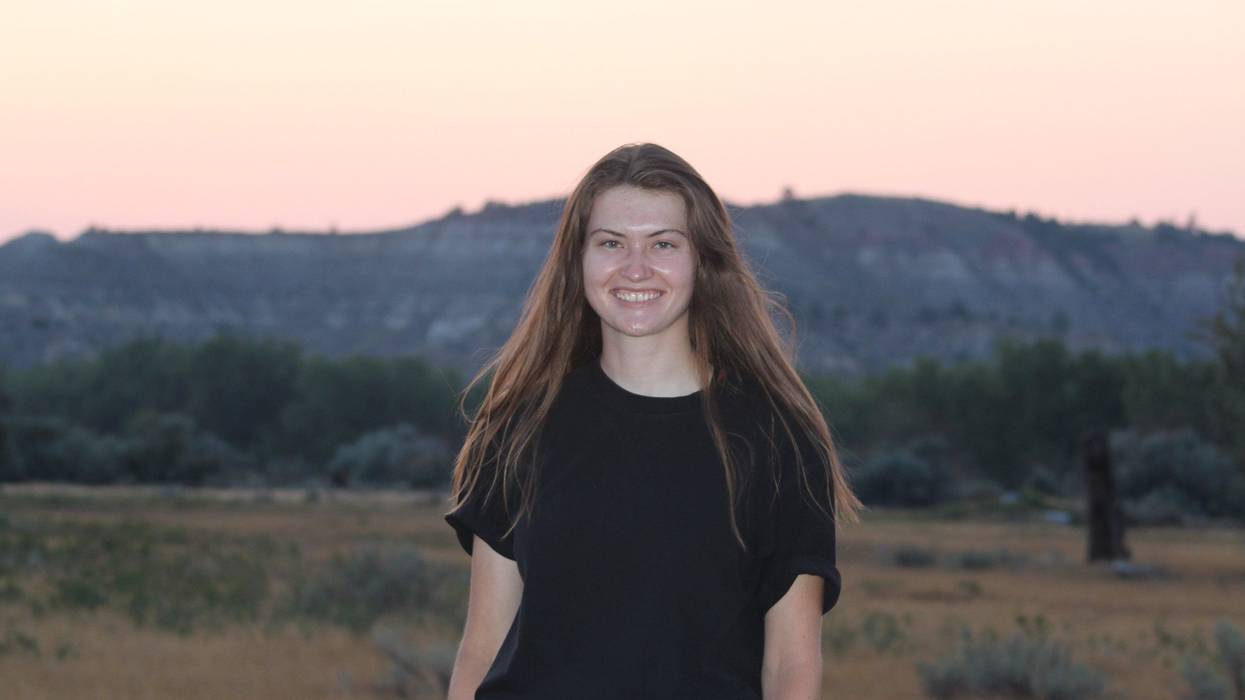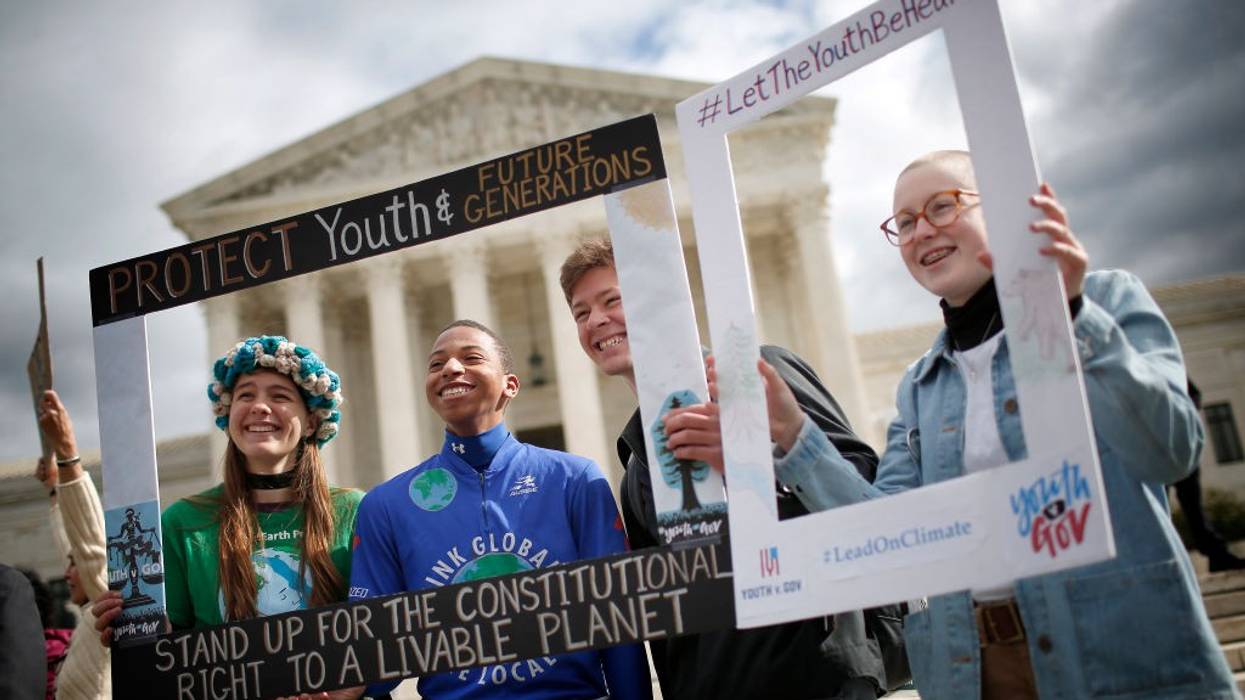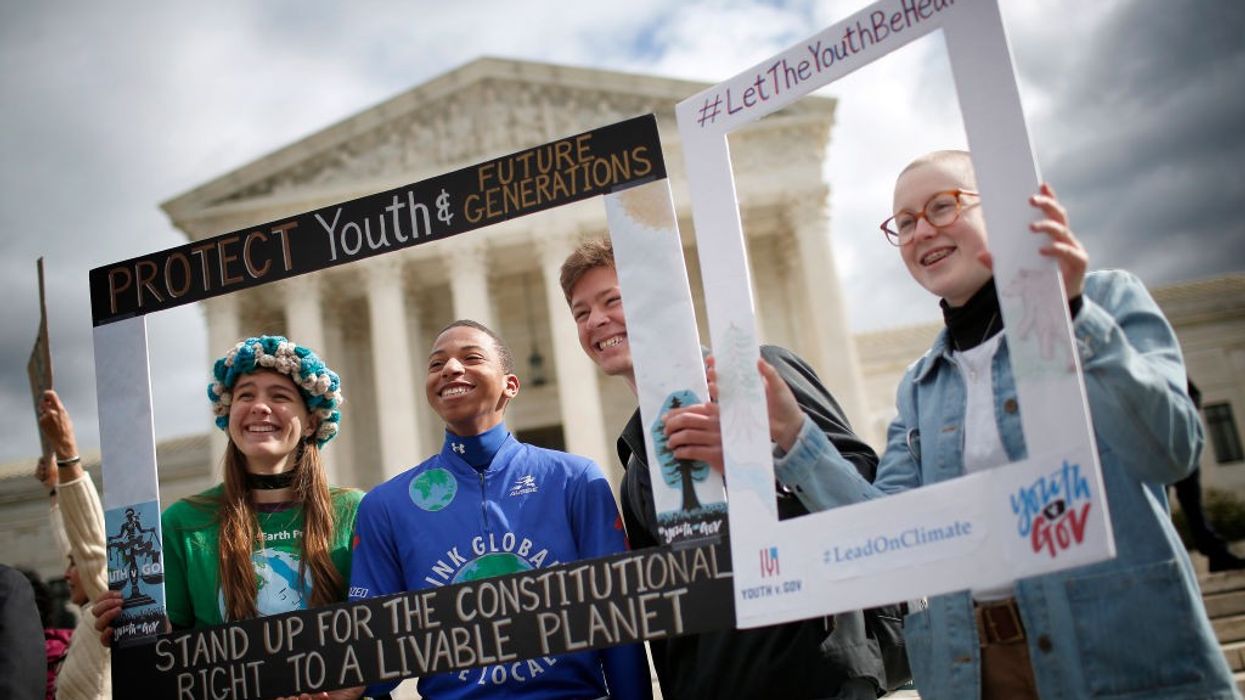'We Will Appeal': Judge Dismisses Youth Suit Against Trump Attacks on Climate
"Courts cannot offer more protection to fossil fuel companies seeking to preserve their profits than to young Americans seeking to preserve their rights," said the plaintiffs' lead attorney.
American children and young adults suing over President Donald Trump's anti-climate executive orders plan to keep fighting after a federal judge on Wednesday dismissed their case, citing a previous decision from the US Court of Appeals for the 9th Circuit.
Eva Lighthiser, Rikki Held—of the historic Held v. State of Montana case—and 20 other young people filed a federal suit in Montana in May, taking aim at Trump's executive orders (EOs) declaring a "national energy emergency," directing federal agencies to "unleash" American energy by accelerating fossil fuel development, and boosting the coal industry.
"The founders of this country believed our rights to life and liberty were the fundamental tenets of a reasoned and just society, among the most sacred of rights to protect from government intrusion and overreach," said Daniel C. Snyder, director of the Environmental Enforcement Project at Public Justice, one of the groups representing the young plaintiffs.
"Not only should Americans be outraged by unlawful executive actions that trample upon those rights, but also because the harm these executive orders have inflicted was acknowledged by the court—showing the serious nature of plaintiffs' case," Snyder continued. "Allowing the burning of fossil fuels to continue will eventually render our nation unlivable for future generations."
"Allowing the burning of fossil fuels to continue will eventually render our nation unlivable for future generations."
US District Judge Dana Christensen "reluctantly" dismissed Lighthiser v. Trump on Wednesday, pointing to the 9th Circuit's 2020 opinion in Juliana v. United States, a constitutional climate case that the US Supreme Court effectively ended in March.
"Plaintiffs have presented overwhelming evidence that the climate is changing at a staggering pace, and that this change stems from the rise in atmospheric carbon dioxide, caused by the production and burning of fossil fuels," wrote Christensen. "The record further demonstrates that climate change and the exposure from fossil fuels presents a children's health emergency."
The appointee of former President Barack Obama also said that he was "troubled by the very real harms presented by climate change and the challenged EOs' effect on carbon dioxide emissions." Specifically, he noted, "plaintiffs have shown the challenged EOs will generate an additional 205 million metric tons of carbon dioxide annually by 2027, an increase which plaintiffs convincingly allege will expose them to imminent, increased harm from a warming climate."
While Adam Gustafson, acting assistant attorney general of the Environment and Natural Resources Division at the US Department of Justice, cheered the dismissal of what he called "a sweeping and baseless attack on President Trump's energy agenda," the judge wrote that "if the 9th Circuit disagrees" with his decision, he "welcomes the return of this case to decide it on the merits."
Lawyers for the youth plaintiffs have already set their sights on the higher court. Lead attorney Julia Olson of Our Children's Trust stressed that "Judge Christensen said he reached his decision reluctantly and invited the 9th Circuit to correct him so these young Americans can have their case heard—and the 9th Circuit should do just that."
"Every day these executive orders remain in effect, these 22 young Americans suffer irreparable harm to their health, safety, and future," she noted. "The judge recognized that the government's fossil fuel directives are injuring these youth, but said his hands were tied by precedent."
"We will appeal—because courts cannot offer more protection to fossil fuel companies seeking to preserve their profits than to young Americans seeking to preserve their rights," Olson added. "This violates not only the Constitution and Supreme Court precedent, but the most basic principles of justice."


